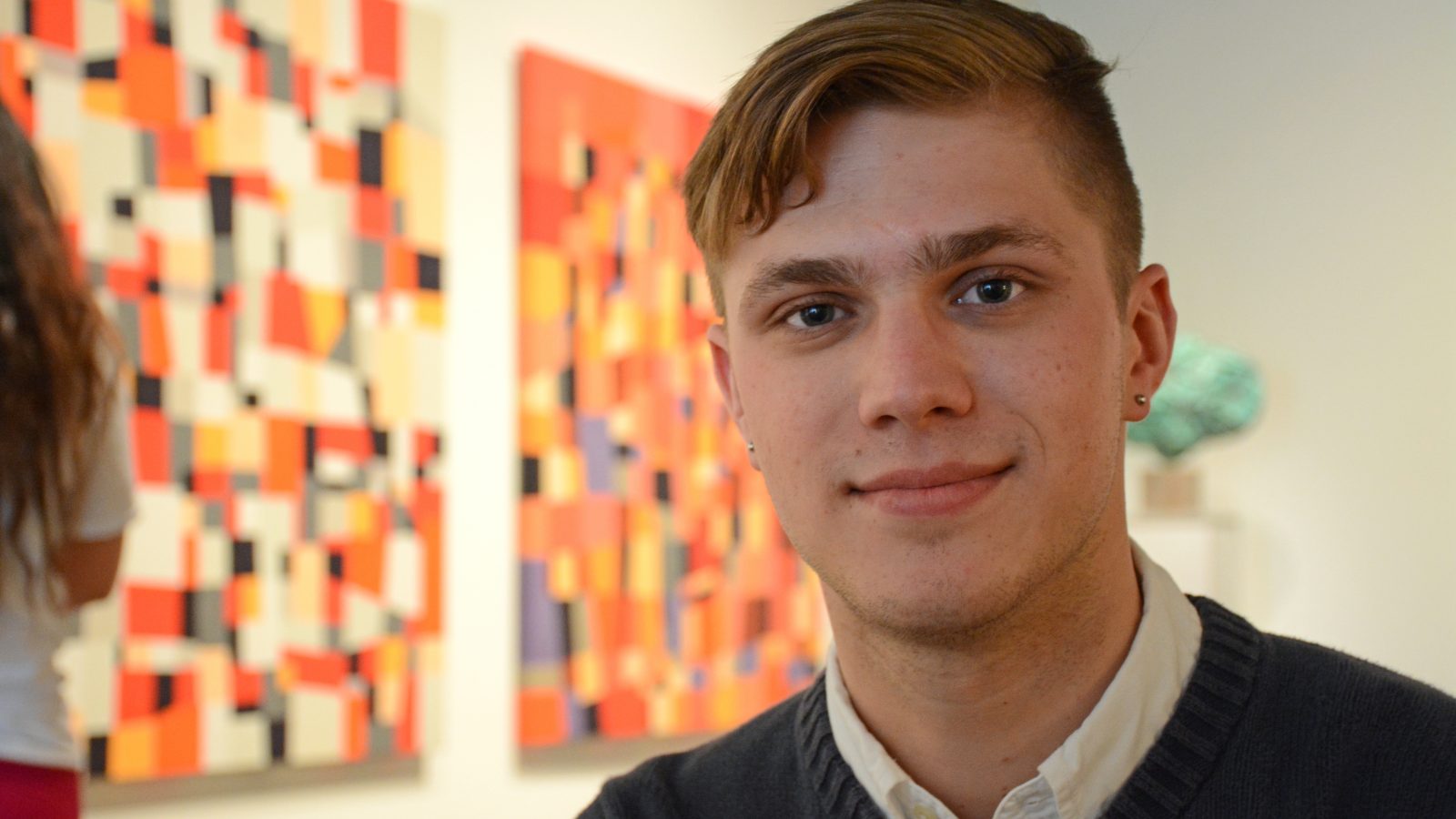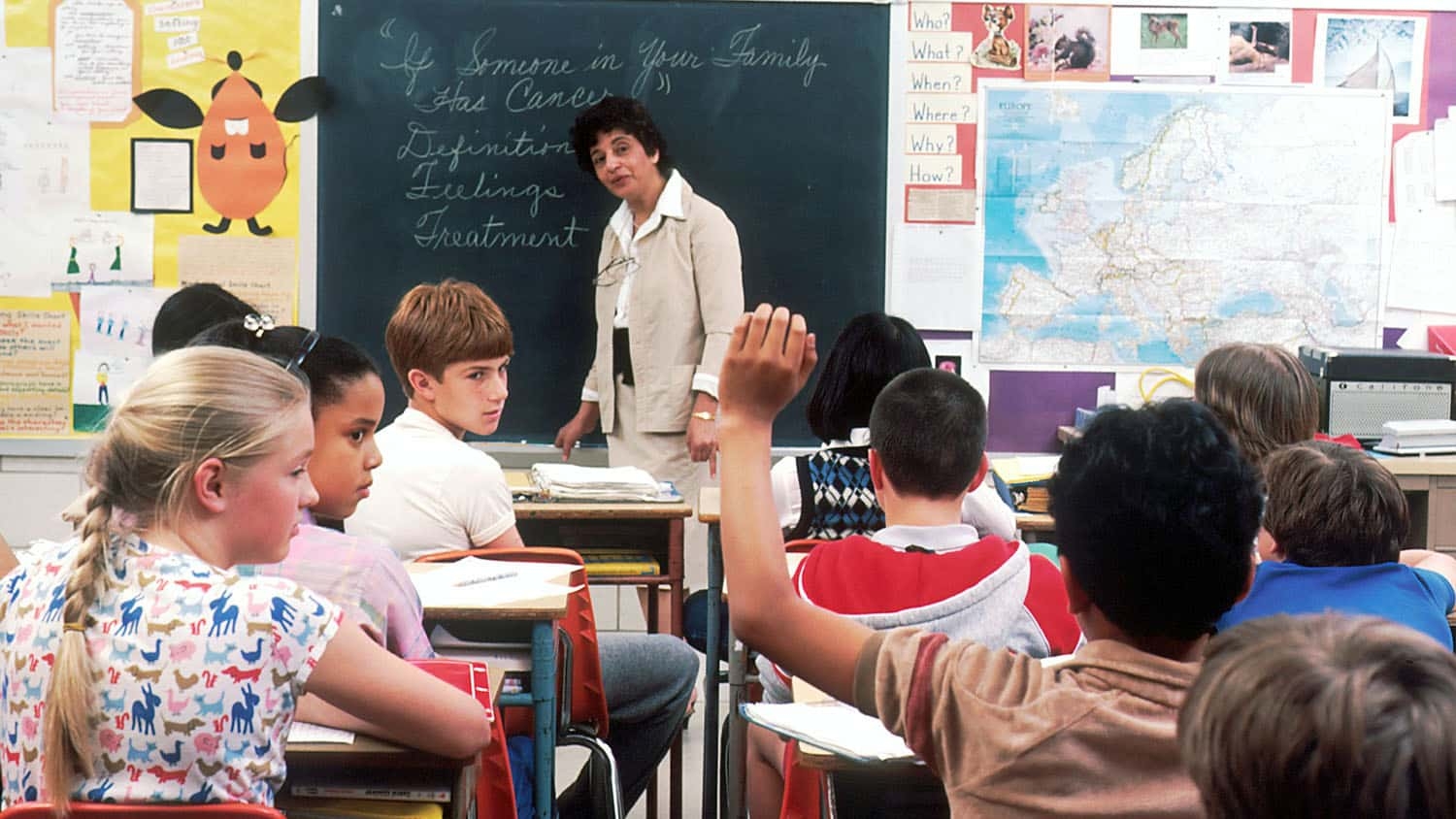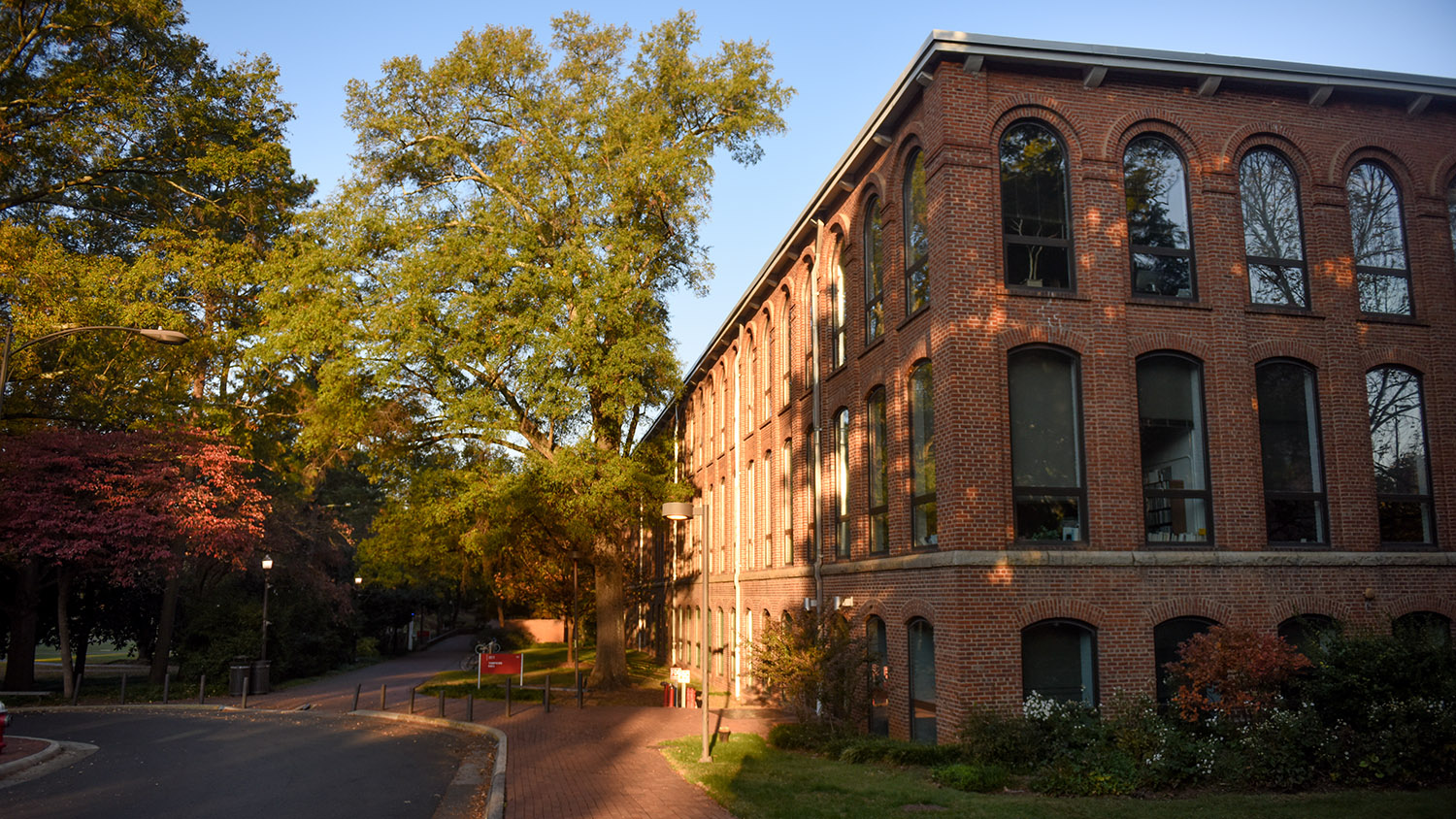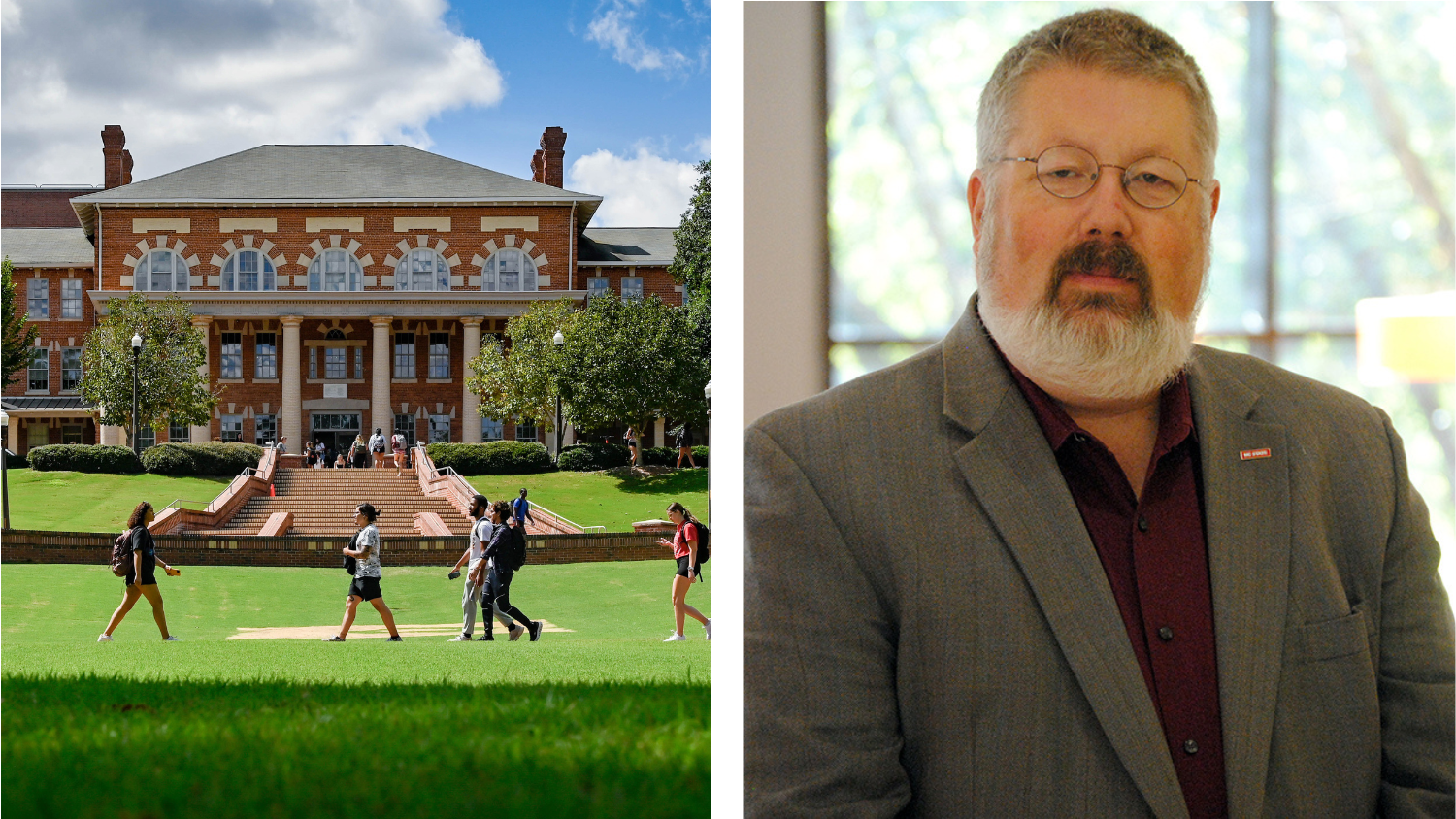Student’s Art History Research Leads to Museums, Galleries Abroad

Kyle Canter’s study of art history has led him to some far-away places.
The NC State senior has followed his growing interest in the history of photography to museums, galleries and archives in the United States and across Europe. He’s interviewed prominent art collectors in New York, searched through reference libraries in Berlin and gained access to rare prints in Italy.
For a student who initially came to NC State to pursue a degree in the sciences, Canter’s exploration in the arts has been a new type of experience. It started the summer before his freshman year, when he took an art history course abroad. He enjoyed the class so much that he signed up for a similar one during his first semester on campus. It wasn’t long before he changed his major to arts studies, a degree offered through NC State’s Interdisciplinary Studies program.
Canter went on to add a second major in history and, after joining the history honors program, began working on his honors thesis. All students accepted to the Department of History’s Honors Program produce a thesis that serves as the end-product of their study.
“Working on a thesis while pursuing my double major kind of combines my interests in science and the humanities,” Canter says. “On the research side, I get to work with data. And on the art history side, there’s storytelling.”
Honors Thesis
Canter’s thesis focuses on Wilhelm von Gloeden, a 19th-century German photographer, perhaps most known for his nude studies of young men and boys of Taormina, Sicily. Specifically, Canter is studying the impact and circulation of von Gloeden’s work, which was often distributed through postcards in Europe. Canter ultimately hopes to answer whether von Gloeden’s images created an early, discreet community amongst gay men in Sicily.
For his research, Canter earned a Supercurricular SEED Grant from NC State’s Fellowship Advising Office to spend several weeks studying at galleries, museums and archives in the U.S. and abroad. The grant, funded by a gift from the late Marilyn D. Blanton, allows students to pursue extraordinary academic opportunities in the summer.
Canter started his work in New York, where he spent time at the Leslie-Lohman Museum of Gay and Lesbian Art. There, he interviewed one of the museum’s founders, Charles Leslie, who has studied, written about and preserved von Gloeden’s work.
From New York, Canter went to Berlin for four weeks, where he visited art reference libraries and studied several of von Gloeden’s images and prints at the Museum of Photography. His trip also included two weeks in Florence, Italy, where he visited the Fratelli Alinari National Museum of Photography.
“It’s very important to actually go to these art museums and galleries,” Canter says. “A lot of people may think, ‘You can just go to an online archive and look at the images.’
But looking at them in person is just a different experience. Photography is art; you have to see it in front of you.”
‘A Lifelong Pursuit’
Prior to working on his thesis, Canter had written seminar papers for his history courses; however, his work on von Gloeden took his research experience to another level.
“After delving into something for so long, I will think I have all the sources I need, but one new keyword will pop up, and then there’s so much more to find,” Canter says.
“A lot of what helps with learning about research is having a faculty member who points me in the right direction,” he says, adding that his thesis advisor, history professor James Boyles, has been extremely helpful throughout the process.
Canter’s study of art history also includes working in museums on and off campus. He has interned at the North Carolina Museum of Art, where he spent time in the art reference library, met photo curators and helped put together education materials for tours. He also interned at NC State’s Gregg Museum of Art and Design, where he served as a photo archive intern and helped update the image database of objects.
Outside his studies, Canter also enjoys working behind the camera. “Learning about art history teaches me to be a more original photographer myself,” he says. “I spend more time thinking about composition and what has been done and what hasn’t been done. I also think about the cultural significance of each photo.”
After graduating in fall 2018, Canter hopes to earn his doctoral degree and ultimately work in academia. However, he’d also like to spend time in a museum or gallery.
Regardless of the specific career he chooses, Canter says he’s happy to have found a field and an area of study that truly interests him. That’s very important, he says. As a student ambassador on campus, Canter says he often encourages prospective students to find their own academic niche:
“If you are passionate about something and you understand that your education is a lifelong pursuit, you’re going to be fine,” he says. “If you’re naturally motivated, you’re going to be successful.”


